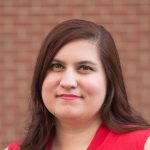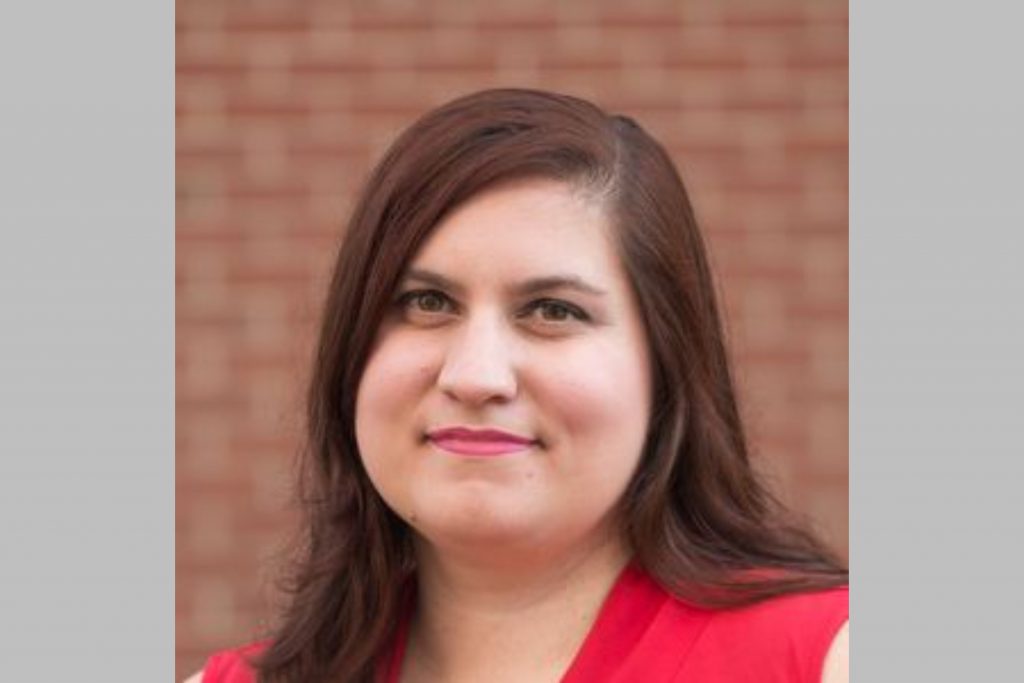We’re taking time to get to know the members of the GSA’s Early Career Leadership Committees. Join us to learn more about our 2020 early career scientist advocates.

Lossie “Elle” Rooney
Policy Subcommittee
North Carolina State University
PhD Candidate in Genetics
Research Interest
Gene regulation is often referred to as the “dark matter” of the genome. We have long wanted to understand how the differences between individuals and different species arise, but as genetics advanced we did not discover enough different genes and sequence changes to account for all of the differences we see. A key paper in the 1970s thoroughly examined homologous proteins from both humans and chimpanzees and established that our genes and the molecules they encode are not enough to explain the striking differences between these two species. The authors instead proposed that how our genes are regulated may play more of a role in the differences we see both between species and between individuals of the same species.
My research applies this idea to the observation that we often see similarities between individuals within a species despite genetic variations in the genes involved in a physical trait. For example, most of us develop hands that have four fingers and an opposable thumb. We have some differences, such as individual finger lengths and length of fingers relative to the palm, but the overall structure is largely the same despite the number of genes involved in patterning the hand and likely variation in those genes. Buffering reduces the observable effect of this variation, likely through compensatory regulation or genetic redundancy, so genetic variation can accumulate in a population without adversely affecting individuals.
I am working on the Gap Gene Regulatory Network that is active in patterning the anterior-posterior body axis in embryonic development in fruit flies. We have two goals: identifying regions of the genome which affect core gene regulation within the network, and exploring how differences in these regions modify gene regulation of genes outside of the network. In the long term, I would like to explore using this kind of information to either make predictions about outcomes for individuals with different genetic backgrounds or contribute to drug discovery based on adjusting gene expression at the right time.
As a PhD-trained scientist, you have many career options. What career paths interest you the most?
I have always wanted to be a researcher, even before I knew the term “researcher.” I’ve always been thirsty to know as much as I can and to share it with others, which still drives me today. I loved everything about biology as a child and spent most of my free time either looking things up or searching for interesting things outside, which I then explained to my brother, cousins, and anyone else who would listen.
Currently, I do both benchwork and computational work, though in the future I would like to transition to more computational work. I am also planning to minor in statistics during my genetics PhD work. Long term, I would like to continue to use statistical methods to analyze genetic data and branch out to additional organisms, including human data.
While I primarily want to stay within a research position, where I would like to work is an open question. Because of my general love of science and learning, I think either industry or a research institute would be a good fit for me. I am also open to the idea of working in a federal institution where I could still be involved in research while having a public impact by sharing my findings with others.
In addition to your research, how else do you want to advance the scientific enterprise?
Personally, I want to have an impact by being accessible as a person who works in science. I spent most of my childhood in rural areas and did not have access to scientists. In fact, most people I knew did not know anyone who was a scientist even though I lived within an hour or two of some major research centers. I think this lack of knowing scientists as people within our communities is a major barrier to public trust and positive valuation of science. It is an entirely different experience to know a trusted and knowledgeable person than it is to watch a demo or complete a hands-on activity about a specific topic. Both are important, though I feel a stronger pull to the former.
Service work is particularly important to me, especially in terms of increasing understanding, trust, and appreciation between scientists and nonscientists. Currently, I am a volunteer penpal with Letters to a Pre-Scientist as one of many efforts to work toward having this kind of impact. I previously worked in extension and engagement. During that time, I had a hard time with the contrast between these and outreach, which I considered less long-term and substantial.
Professionally, I want to have an impact on bringing genetics more into public health. I recently learned about the concept of “impact identity” and how it relates to a scientist’s expertise and interests as well as community needs. In building my impact identity, my goal is to humanize genetics in a way that underlines science as a process of understanding reality and acknowledges scientists within that profession as trusted community members. This is a difficult subject as genetics has historically been improperly used by researchers and bad actors as justification for racist and sexist ends. Additional issues such as privacy concerns and conclusions drawn from problematic datasets also need to be acknowledged. Genetics can be a useful tool for public health and personalized medicine if these concerns are addressed in a way that promotes transparency, inclusion, and mutual exchange; however, it is easy to imagine how people from groups who were historically exploited for genetic research or faced discrimination due to genetic information (information that was often inferred due to easily observable traits like skin color) would be wary today.
As a leader within the Genetics Society of America, what do you hope to accomplish?
I would like to meet as many GSA members and leaders as possible to learn about their different perspectives on science leadership which I can then incorporate into my own leadership philosophy. I feel like genuine attempts at taking others’ perspectives on how they have typically experienced something that is important to you is crucial for eliminating the barriers to the mutual exchange and understanding that is vital to science. Many of us do not experience the same barriers, but appreciating those barriers we do not individually experience is crucial to dismantling them. Consider public parks: enjoying the sunset at a public park seems like a fairly universal experience. When that park memorializes an influential pre-Civil War slave owner, how are some individuals’ experience of the sunset affected? How does this create a non-universal barrier to what should be a positive experience? Can that barrier be addressed in such a way to afford everyone the opportunity for the same positive experience?
No single approach can be complete, but with the increasing diversity we see within science, it is definitely worthwhile to learn about as many perspectives as possible to increase inclusivity and understanding. As a member of the Policy and Advocacy Subcommittee, I also hope to draw attention to the importance of engagement work alongside outreach as well as how both can be bolstered by effective policy. Outreach increases your reach to others outside of your institution while engagement focuses on the building of longer-term relationships with the community. Both of these are important. As communities change over time, we need outreach to continue to bring new people into the fold while engagement deepens the connection and increases the benefit of involvement for the community.
Previous Leadership Experience
- Mentor – undergrad and graduate students – NC State University
- Member/Junior President/President – NC State University Genetics Graduate Student Association
- Graduate Student Representative – NC State University Standing Committee on Speakers & Lectures
- Staff Senator – NC State University Staff Senate
To contact Lossie “Elle” Rooney, you can email her at: llrooney@ncsu.edu













